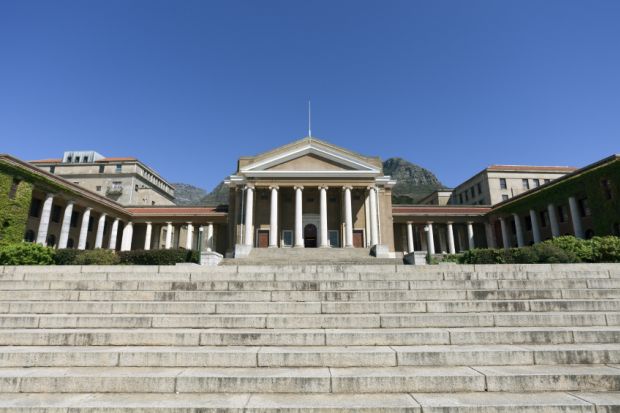Most of South Africa’s higher education institutions, including its leading universities, are facing serious financial problems, as debate over a possible increase in tuition fees rumbles on.
A reply to a parliamentary question submitted by the opposition Democratic Alliance revealed that 16 out of the country’s 26 universities are expected to experience “financial distress” in 2017-18.
The aggregate deficit across these 16 institutions, which include the universities of the Witwatersrand and Cape Town, is projected to be 3.97 billion rand (£209 million) during the same year.
The data, based on modelling conducted by South Africa’s Council on Higher Education, emerged as ministers, universities and students struggle to reach agreement on a possible increase in tuition fees.
Universities have said that they need a minimum increase in their annual income of 8 per cent for 2017 to avoid serious damage to the financial health of the sector.
Following a meeting at the start of August between Universities South Africa (Usaf), which represents the 26 institutions, higher education minister Blade Nzimande and the University Council Chairs Forum, Usaf said all parties had agreed to work towards forming a joint approach on how to fully fund an increase of 8 per cent.
Usaf said that this additional income could come from a “variety of sources, including the state subsidy, student fees and a complex array of other private sources of funding”.
Any increase in fees, however, would be highly controversial, with students threatening demonstrations like those which forced the cancellation of rises proposed by vice-chancellors last year.
Belinda Bozzoli, the Democratic Alliance’s shadow higher education minister, accused the ruling ANC of “chronic financial neglect” and of offering “pronouncements without solutions”.
Separately, more than 1,200 academics from 18 universities have written an open letter to Mr Nzimande, as well as South African president Jacob Zuma and finance minister Pravin Gordhan, urging them to address the funding crisis.
The letter, sent to the Mail & Guardian newspaper, warns that the country’s universities are “chronically underfunded” and have “reached a limit”.
“We simply cannot weather any further cuts without jeopardising the academic project,” the letter says. “As academics responsible for the quality of South African universities, we call on government to take seriously the worth of university education as a public good, and to reverse the decline in public higher education by substantially increasing the state subsidy to universities.”




